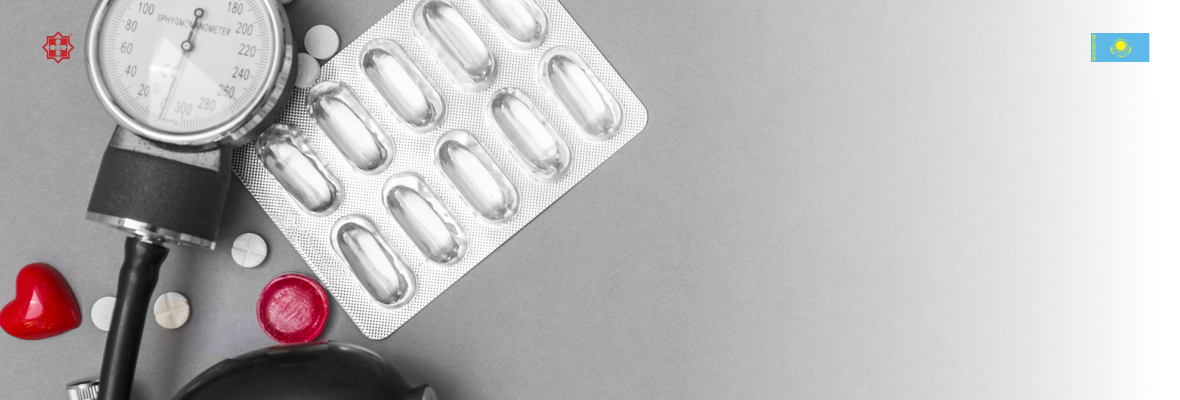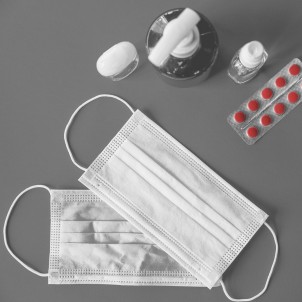Health
News
Amendments in the Code "On public health and health care system"

On July 7th, 2020, the Head of State Kassym-Zhomart Tokayev signed the Code "On public health and health care system" of the Republic of Kazakhstan.
The Code "On public health and health care system" is a core document which guides the entire medical community of the Republic of Kazakhstan.
The coronavirus pandemic has left an imprint on regulatory environment, in particular the Code "On public health and health care system", in which connection the introduced changes affected the powers of medical officers, the expanded list of their powers includes:
1) regulation of air traffic between regions, transportation by railway, other passenger transportation, as well as regulation of movement on personal vehicles;
2) regulation of entertainment, sporting events, exhibitions, forums, conferences and other kind of events with congestion;
3) regulation of holding religious, family, commemorative events (banquets, weddings, anniversaries, commemorations), including the ones held at home, except for the events in which only persons living together participate;
4) regulation of the activities of facilities;
5) the regulation of the population flows;
6) regulation of the activities of state bodies (enterprises), national campaigns, other individuals and legal entities with the establishment of sanitary-epidemiological requirements for their activities during the quarantine period;
7) regulation of sanitary and disinfection treatment of public places, industrial territories, airports, children’s playgrounds and other residential facilities;
8) ensuring control over the observance of quarantine measures, sanitary and disinfection regime at the facilities whose activities are permitted and adoption of appropriate administrative measures in accordance with the Code of Administrative Offenses.
A paragraph has been added to the updated Code on the permission to import medicines and medical devices not registered in the Republic of Kazakhstan into the territory of the Republic of Kazakhstan on the basis of a statement (permitting document) issued by the authorized body, provided they are intended for humanitarian aid (assistance), prevention and (or) elimination of the consequences of emergency situations, as well as prevention and treatment of the consequences of exposure to radioactive, biological and chemical substances (vaccines, antidote).
Even at the stage of consideration in the Parliament, the draft Code caused broad resonance and criticism from the public. The citizens were worried about vaccination and organ donation issues, in connection with which parliamentarians have made their amendments and additions to the document. Now, according to the Code, the transfer of organs and tissues seized from deceased citizens of the Republic of Kazakhstan abroad will be carried out exclusively when it is necessary to provide medical assistance to a citizen of the Republic of Kazakhstan. In case of absence of a person's lifetime will expression, the spouse has the right to declare disagreement (consent) to the removal of his organs, and in his (her) absence, one of the close relatives.
Vaccination of the population was divided into compulsory and voluntary. It is also stipulated that children who have not received routine preventive vaccinations shall be admitted to preschool institutions of children only when the threshold level of collective immunity is reached in a preschool institution. At the same time, parliamentarians made an amendment confirming the right of parents to make an independent and informed decision on the vaccination of their children.
It was decided to leave the paragraph of punishment for medical errors in the Criminal Code, provided that they entailed serious consequences or were committed by a public officer.
The Code also provides for restrictions on the consumption of new tobacco smoking systems such as Iqos, Glo, a ban on the import, production and distribution of snuses and other smokeless tobacco products, and the introduction of administrative liability for tobacco products sale to persons under the age of 21.
Thus, the updated Code will contribute to strengthening the health of the nation, to the development of domestic medicine, as well as protect the rights of health workers. The Code is also aimed at improving the performance of the health care system in emergency situations and conditions, sanitary and quarantine control and ensuring the epidemiological safety of the country.
Go Back




